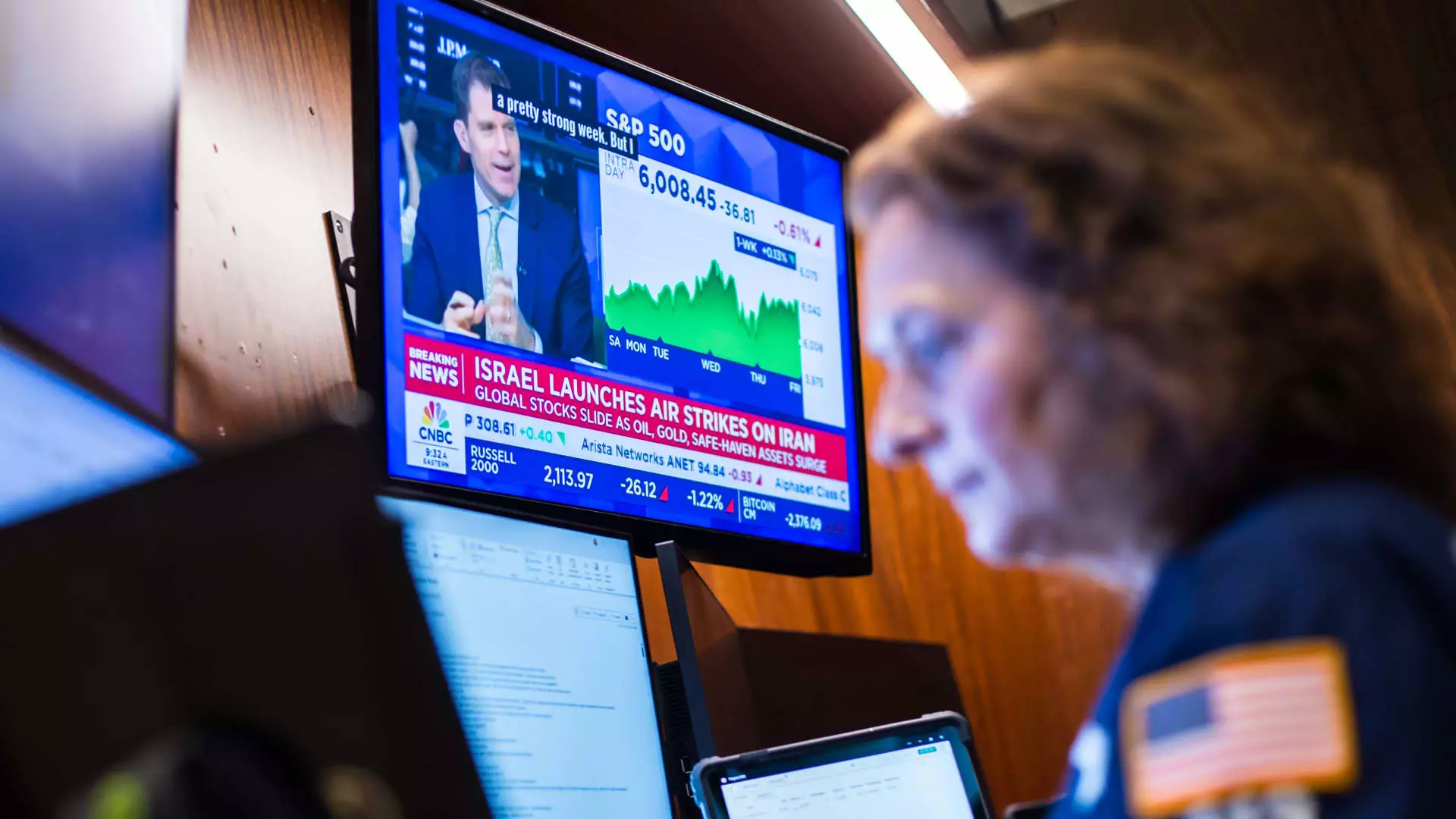This past week, what many anticipated would be an uneventful period in the financial markets was abruptly transformed into a whirlwind of uncertainty. The catalyst? An Israeli airstrike targeting Iran’s nuclear infrastructure sent ripples across markets, jolting investors out of their comfort zones. The aftermath of this geopolitical upheaval was evident. U.S. markets, which previously seemed poised for a positive week, saw steep declines—the S&P 500 and the Nasdaq Composite plunged, losing over a full percentage point in a single day. Amidst this chaos, commodities shone as gold hit a two-month peak, showcasing its status as a trusted safe haven for anxious investors. Oil prices simultaneously surged, illustrating the delicate balance between geopolitical events and commodity values.
This situation exposes an uncomfortable reality: the fragility of financial markets and their susceptibility to global tensions. It’s daunting that an airstrike—a tool of war—can provoke such an immediate response in economic sentiment. As a liberal, I find it disconcerting that actions taken in the name of national security can trigger financial instability, shaking the very foundation upon which millions build their livelihoods. The stock market’s reaction is an unsettling reminder that peace remains a tenuous thread in an increasingly volatile world.
The Unsettling Economic Landscape
Yet, amid the turmoil, there emerged glimmers of hope indicated by encouraging economic data released earlier in the week. Inflation—an ever-looming specter in recent years—revealed signs of moderation as core prices posted lower-than-expected increases. Similarly, the producer price index offered reassurance that wholesale inflation pressures may be easing. With this rebound in data, the underlying labor market exhibited resilience, albeit with indications of softening—an unbalanced state defined by stagnation.
It’s a mixed bag, isn’t it? As consumer confidence nudges upward, one wonders: will these signs of stabilization be enough to overcome geopolitical adversities? The volatility on the market showcases a fundamental truth—we exist in a world where every piece of economic data can be overshadowed instantaneously by an international incident. For those of us who believe in a socially conscious economy, it raises profound questions about the intersection of war, peace, and prosperity. It’s disheartening to consider that our economic stability hangs perilously on foreign affairs, illustrating the lack of control we have over our environment.
The Electric Buzz of AI Innovation
In stark contrast to the geopolitical confusion, the realm of technology, particularly artificial intelligence, showcased a different narrative altogether. The race for AI supremacy was alive and kicking, with companies making significant strides in the field. Apple’s annual developer conference generated little buzz due to the scarcity of groundbreaking announcements, and Meta Platforms, however, managed to capture investor attention with its significant acquisition movements, signaling intent to lead in the realm of artificial general intelligence.
While NVIDIA CEO Jensen Huang laid out ambitions for accelerated computing capacity, the unfulfilled promises left investors wondering about the pace of innovation. The bubbling undercurrent in the tech sector, particularly AI, maintained an air of excitement amid broader market declines. This juxtaposition raises an interesting dialogue about the implications of dependency on technology and innovation. A society that prizes efficiency and advancement cannot ignore the responsibility of harnessing new technologies for the greater good.
In a world where economic landscapes shift and geopolitical tensions escalate, how do we ensure that technological progress remains a positive force, rather than a tool for further inequality? It’s essential for us, as advocates of social responsibility and fairness, to address potential ethical dilemmas and ensure that rapid advancements benefit all and not just a select few. As we strive for progress, we cannot allow ourselves to be complacent in the face of rapid change.
Imperfect Yet Hopeful
While the investment landscape might appear volatile and fraught with challenges, there’s undeniable resilience reflected in these recent economic indicators. As optimistic liberals, we must advocate for smart policies that not only bolster economic growth but also hedge against geopolitical instabilities. The intersection of economic prosperity and peace is delicate, and how we navigate these challenges will define not only the market’s future but also the societal fabric that supports it.
This past week served as a stark reminder that the markets are influenced profoundly by external events. Yet, it also presented opportunities for growth, innovation, and renewed dialogue about the directions in which we wish to steer our world. As we continue to navigate the tumultuous waters of both economics and technology, it’s essential to foster hope and vigilance, leading us toward a more equitable and sustainable future.

